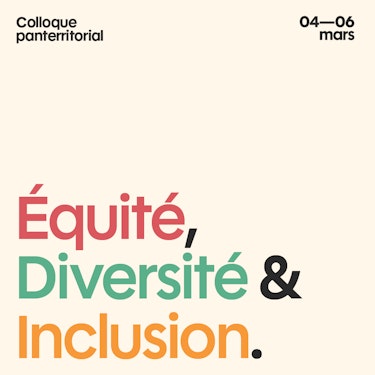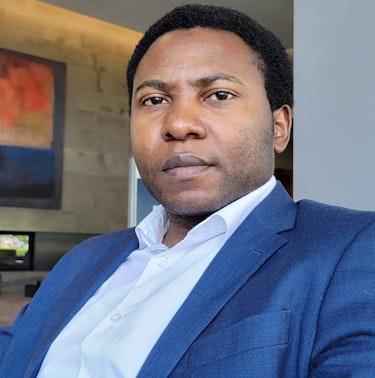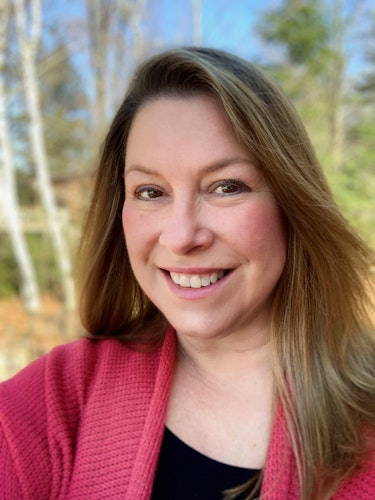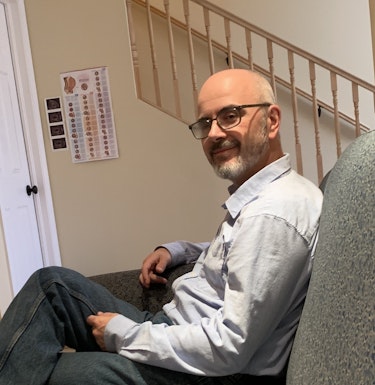Child Development Monitoring from 0 to 5 Years (In French)
This workshop offers you an understanding of the motor, cognitive, language, socio-emotional, and sensory development stages of children aged 0 to 5.
Free
Our cookies and those of our partners help improve your experience and analyze your use of the website. To learn all about cookies, check our privacy policy

The first day of the Pan-Territorial Leadership in Equity, Diversity, and Inclusion (EDI) Symposium began live from Nunavut, offering a rich program full of exchanges and learning. From the outset, participants were immersed in deep reflections on northern realities of leadership within the very concrete context of EDI.
The first conference, led by Amadou Ghouenzen Mfondi (he/him), Coordinator of Francophone Immigration EDI Initiatives at the Federation of Francophone and Acadian Communities of Canada (FCFA), set the foundation for the symposium by exploring the key concepts of equity, diversity, and inclusion. He emphasized the importance of a clear and nuanced understanding of these ideas to better apply them in professional and community settings.
“Inclusion is an environment where everyone can participate and feel valued, and for that, we must anticipate needs and create a strong sense of belonging.” – Amadou Ghouenzen Mfondi (translated from French)
The discussions highlighted several key points for strengthening EDI in Francophone communities in minority settings. Among the standout ideas, it was emphasized that:

Amadou holds a PhD in conflict studies and is a lecturer at Saint Paul University and the University of Ottawa. His teachings and research primarily focus on social justice, diversity policies, and identity conflicts in multicultural societies. In his community activities, Amadou Ghouenzen Mfondi works to promote governance and inclusive leadership essential for harmonious living together in a diverse context.
Next, Helen Roos (she/her) discussed the role of allies in supporting Inuit and Indigenous communities. Her expertise in northern workforce development shed light on practical approaches to building respectful and lasting relationships.
“For me, authentic alliance rests on understanding the history and power dynamics between Indigenous and non-Indigenous people.” - Helen Roos (translated from French)
The exchanges highlighted several crucial elements for becoming a true ally to Indigenous communities while acknowledging power dynamics and privilege at play. Some key concepts discussed included:

Helen Roos is the President and Chief Facilitator of the Ilinniapaa Skills Development Center. Helen specializes in workforce development, research, and program design for northern and Indigenous communities. With over 30 years of experience in designing and implementing programs for First Nations, Inuit, and Métis peoples, she has expertise in areas like alliance, decolonization, and worker orientation. A former federal manager of Inuit workforce development and Director of Canadian Heritage for Nunavut, Helen continues to work closely with northern clients, regularly traveling to implement projects.
To close the day, Stéphane Cloutier (he/him) led a discussion on linguistic diversity, drawing on his work promoting Inuit and French languages in Nunavut. The importance of access to services and the recognition of Indigenous languages was central to the conversation.
“For me, anthropology is not a quest for the other, but a quest for oneself, as our identity and background shape our interpretation of the other.” – Stéphane Cloutier (translated from French)

Stéphane Cloutier is from Islet-Sud, Quebec, and holds a bachelor’s degree in anthropology from Laval University. From 1994 to 1996, he assisted Louis-Jacques Dorais with a study in Nunavut and became a community development officer for the Association francophone d'Iqaluit. Captivated by the territory, he settled there with his family. From 1996 to 1999, he worked with community media and the first Francophone websites in the territories. From 1999 to 2002, he contributed to major projects, including the Inuit art virtual museum inaugurated by Jacques Chirac. From 2004 to 2022, with the Nunavut government, he promoted Inuit and French languages. Now retired, he co-leads Qiliqti Inuktut, Linguistic Services Inc., supporting the Inuit language through technological projects and promoting Franco-Inuit heritage in partnership with the Quebec Maritime Museum.
The day concluded on an engaging note, paving the way for discussions the following day, which will focus on leadership and the deconstruction of stereotypes in the territories.
Loading
Thank you for subscribing